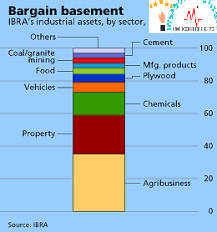The European Reserve Bank Pushes for Accelerated Restructuring Initiatives
Commerzbank, Germany’s second-largest lender, is facing pressure from the European Reserve Bank (ECB) to expedite its restructuring efforts. The top financial regulator in the region has expressed concerns about the bank’s lackluster performance and inflated cost base. In a frank assessment, an ECB official, who attended a Commerzbank supervisory board meeting, highlighted the need for more decisive action. The remarks, revealed in December and made public recently, have shed light on the challenges facing the bank.
ECB Questions Commerzbank’s Medium-Term Goals
During its recent visit to Commerzbank, the ECB disagreed with the lender’s medium-term goal of a 4 percent return on equity. The target, which Commerzbank aims to achieve by 2023, falls significantly below the bank’s cost of capital, currently standing at around 10 percent. According to sources familiar with the matter, the regulatory official expressed disappointment and urged the bank to explore deeper cost-cutting measures. Such direct criticism from ECB authorities is unusual, making it clear that significant changes are necessary for Commerzbank’s future success.
A Call for Contingency Planning
In addition to questioning the bank’s goals, the regulator also called for the development of a backup plan in case the current strategy fails. Commerzbank, which focuses on retail banking and financing for mid-sized German firms, heavily relies on net interest income. However, the ECB’s policy of ultra-low interest rates has had a detrimental impact on the bank’s revenue and profitability. Previous attempts to attract more customers have not generated the expected results. As a result, Commerzbank faces the challenge of finding alternative sources of income to ensure its long-term viability.
An Uphill Battle
The struggles for Commerzbank started with the breakdown of merger talks with Deutsche Bank in April of last year. Since then, the bank’s shares, partly owned by the state, have plummeted by 26 percent. The group was also excluded from Germany’s Dax index in 2018. In response to these challenges, Commerzbank announced a cost-cutting plan last September, which includes closing one-fifth of its branches and cutting 2,300 jobs. CEO Martin Zielke aims to reduce annual costs by 10 percent between 2019 and 2023, with the sale of Commerzbank’s Polish subsidiary, mBank, providing the necessary funds for the restructuring.
Commerzbank Defends Its Performance
Despite the criticism from the regulator, Commerzbank’s board members have rejected the claims, emphasizing the bank’s profitability since 2013. They attribute the recent hit to the bank’s profits and returns to regulatory challenges and the ECB’s negative interest rates. An insider familiar with the matter asserts that while the bank’s results may not be outstanding, they have consistently remained in the black. Both Commerzbank and the ECB declined to comment on the matter.
Bleak Outlook for Commerzbank
As the bank prepares to announce its annual results, analysts anticipate a 32 percent decline in earnings for 2019. The bank had already issued an earnings warning in November. Furthermore, a 25 percent decrease in revenue is projected for this year. These figures highlight the significant obstacles Commerzbank must overcome in order to achieve sustainable profitability and regain market confidence.



